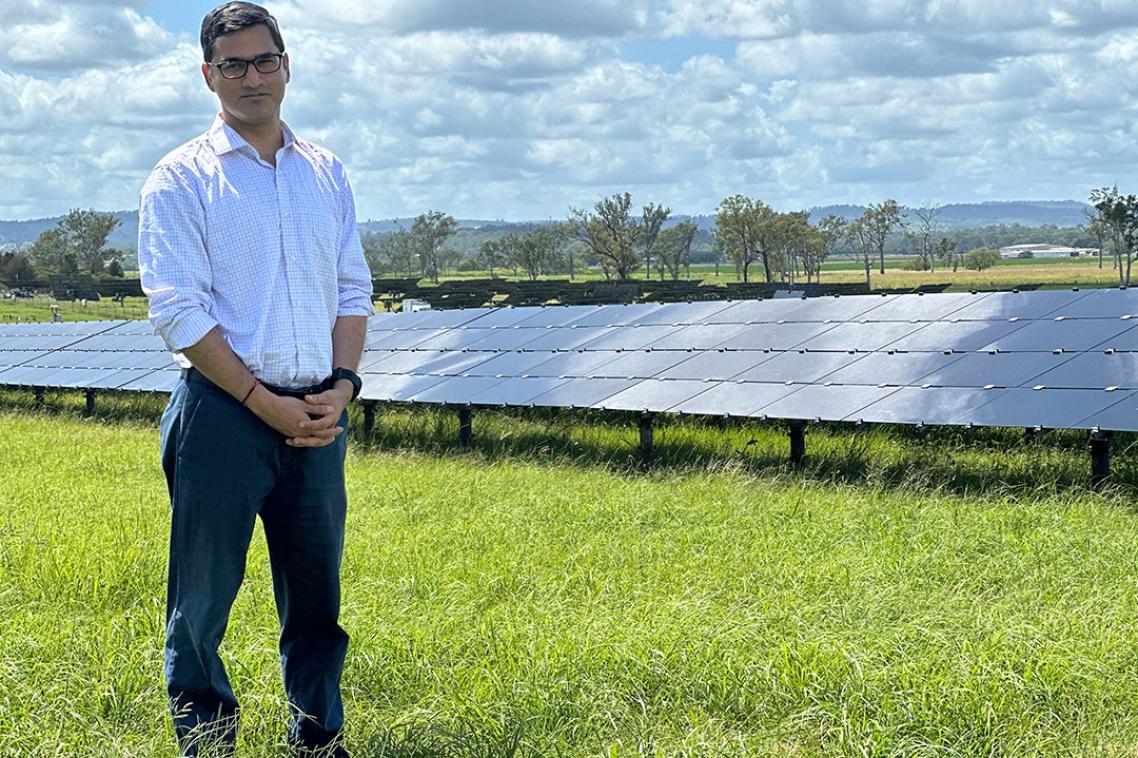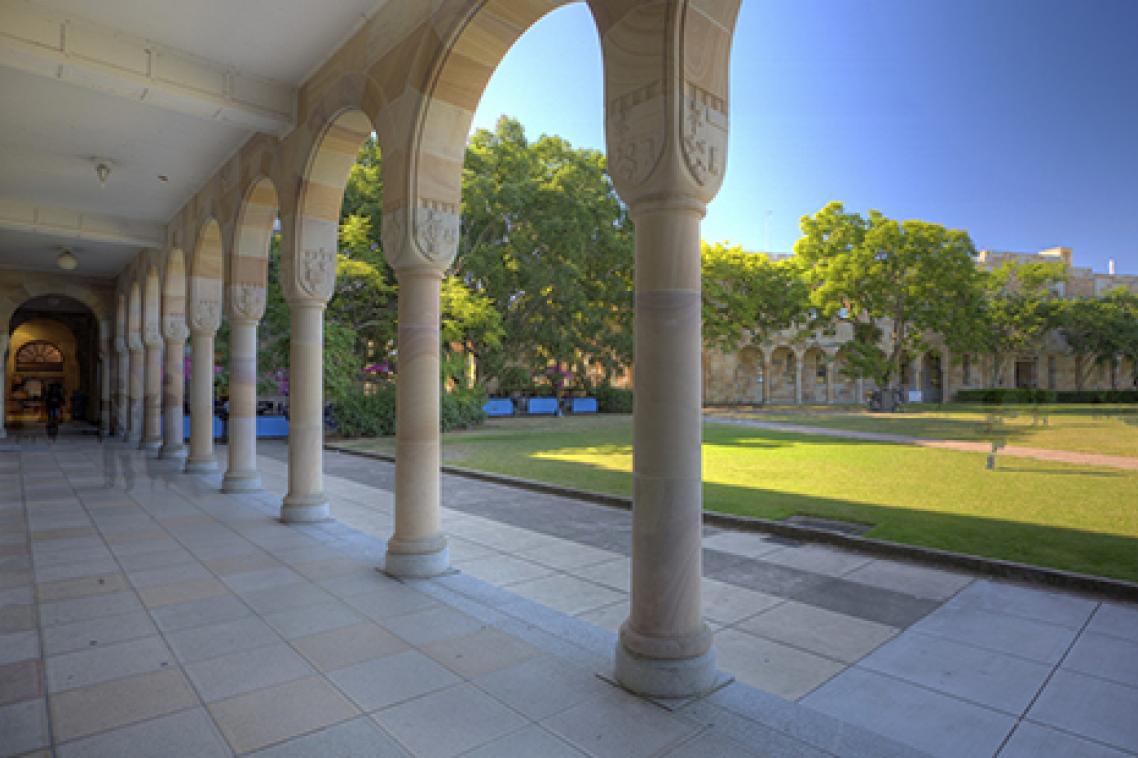UQ start-up to help solar farms power on

Associate Professor Rahul Sharma.
(Photo credit: The University of Queensland. )
A tech start-up from The University of Queensland is set to make efficiencies in the renewable energy sector by detecting faults in solar farm panels.
Associate Professor Rahul Sharma from UQ’s School of Electrical Engineering and Computer Science developed a system using machine learning algorithms to analyse data and detect faulty and underperforming solar panels, and to recommend targeted maintenance.
Dr Sharma said the technology, SolarisAI, detects faults in solar farms without the need to install additional hardware, making it fast and cost effective.
“The challenge with large solar farms is detecting any faulty or underperforming solar panels hidden in a sea of millions,” he said.
“It’s impractical to install monitoring hardware on each panel, inspect every panel for damage or clean every panel to remove dirt.
“We needed to find a way to automate that process.”
Dr Sharma said the UQ technology works at the array and string panel level and sequentially extracts vital information, monitoring for degradation, soiling, wiring faults and tracker problems, along with pinpointing any maintenance needed.
“Underperformance in Australian solar farms cost the industry around $400 million a year,” he said.
“We’re aiming for SolarisAI to reduce those losses by half, and potentially deliver an uplift in revenue of up to 8 per cent.”
Discussions are underway to roll out the technology at Edify Energy and Gentari Solar Australia’s Hamilton solar farm at Collinsville in North Queensland and Genex Power’s Kidston solar farm in North-West Queensland.
Edify Energy CEO and founder John Cole said it was an exciting project.
“The key to maintaining grid reliability and achieving success as a network operator is effective and efficient asset management,” he said.
“This technology has the potential to drive solutions to the world’s energy crisis.”
The project partnered with German-based electronics and connection technology company Weidmueller to develop early prototypes.
SolarisAI was founded by UQ’s commercialisation company UniQuest, spearheaded by investment from Uniseed as well as the UniQuest Investment Fund.
UniQuest CEO Dr Dean Moss said it was an exciting time for the UQ start-up, with Australia’s solar generation capacity on the cusp of stellar growth.
“UQ is committed to sustainable energy and renewable energy generation,” Dr Moss said.
“This is a fantastic commercial opportunity backed by top-notch research with the potential to generate huge economic and environmental benefits.”
Media assets
Interviews, B-roll and images available on Dropbox.
Related articles

Revealing how matter affects the evolution of the universe

10 UQ researchers receive Tall Poppy Science Awards
Media contact
UQ Communications
communications@uq.edu.au
+61 429 056 139
